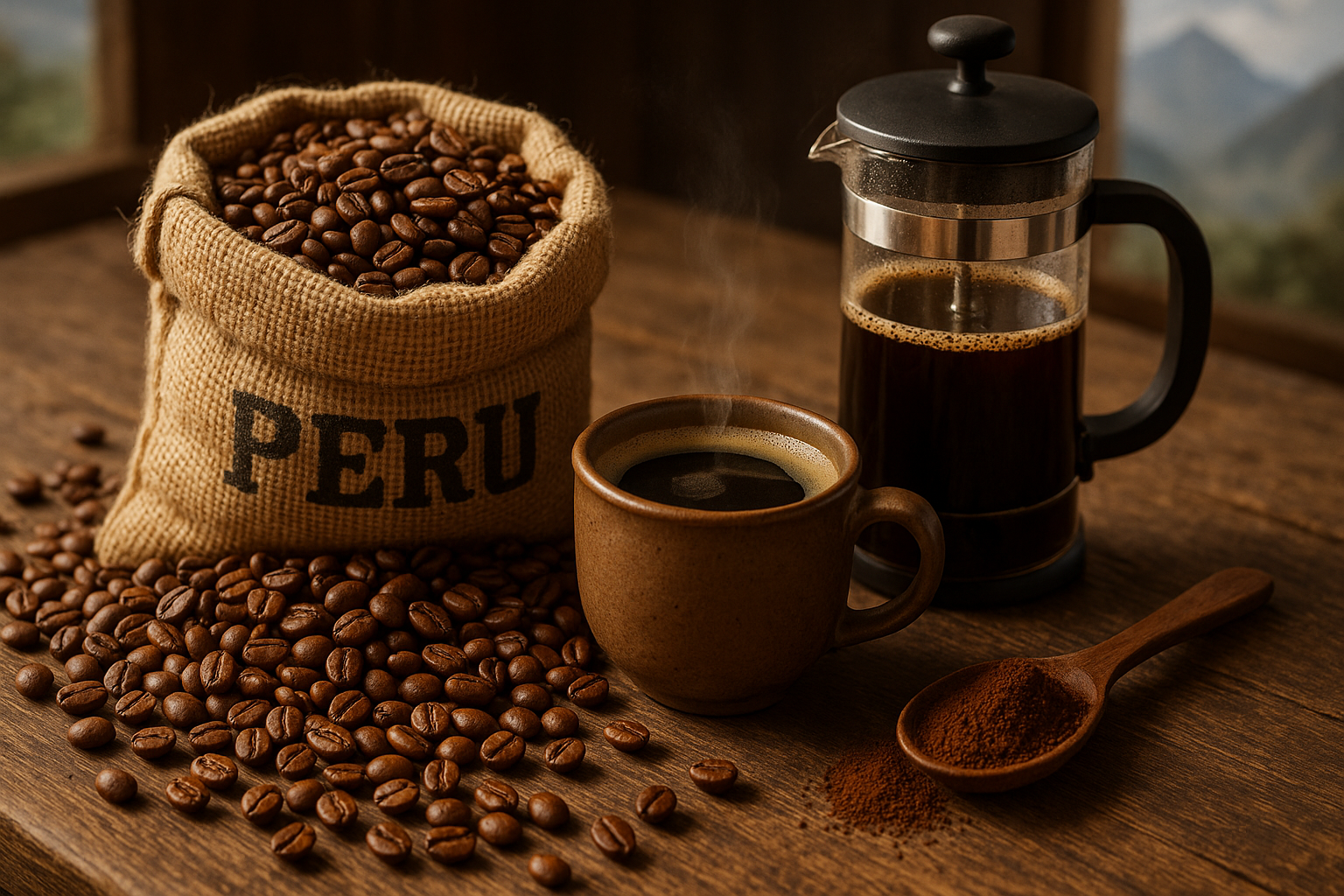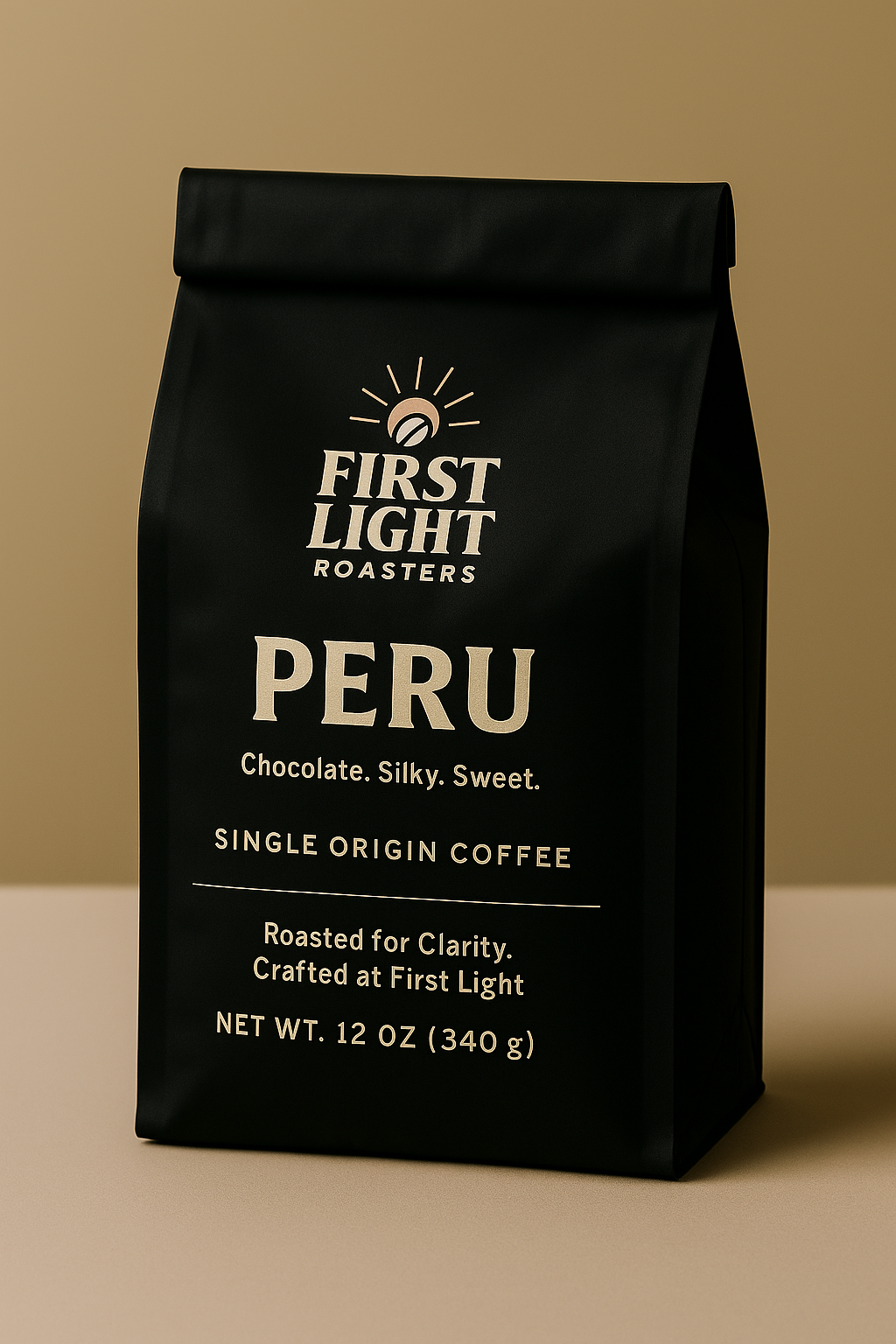Article: Why Is Organic and Ethical Peruvian Coffee Better for You

Why Is Organic and Ethical Peruvian Coffee Better for You
As consumers become more conscious about what they put into their bodies and how their purchases impact the world, the demand for organic and ethically sourced products has surged. Coffee is no exception. More and more people are asking where their beans come from, how they were grown and who grew them. In this context, Peruvian coffee has emerged as a leader in organic and ethical production.
But what exactly does it mean for coffee to be organic and ethically sourced? And why does Peruvian coffee stand out in these categories? In this blog, we’ll explore what makes organic and ethical Peruvian coffee better for your health, the farmers who grow it and the planet we all share.
What Does Organic Coffee Mean
Organic coffee is grown without the use of synthetic fertilizers, pesticides, herbicides or genetically modified organisms. Instead, farmers use natural methods like compost, cover crops and biological pest control to nourish the soil and protect the plants. Organic certification also requires that land be free of synthetic chemicals for at least three years before it can be certified.
In Peru, many coffee farms are already organic by tradition. Due to the high elevation and remote locations of coffee farms, the need for chemical inputs is low. This natural advantage allows many Peruvian farmers to maintain organic practices with relative ease, especially compared to larger commercial operations in other countries.
To receive organic certification, farms must go through a rigorous inspection process. In Peru, many cooperatives help small farmers navigate this process and ensure compliance. These groups also provide training, education and access to international markets that pay premium prices for organic beans.
What Is Ethical Sourcing in Coffee
Ethical sourcing goes beyond organic practices. It includes how farmers are treated, how much they are paid and whether the coffee supply chain is transparent and fair. Some key aspects of ethical sourcing include:
-
Paying fair and stable prices to farmers
-
Ensuring safe and humane working conditions
-
Supporting community development and education
-
Promoting gender equality and worker rights
-
Reducing environmental impact at every stage
In Peru, ethical sourcing is often tied to cooperative models. Many farmers are members of cooperatives that pool resources, share profits and negotiate better prices. These co-ops often receive Fair Trade certification or similar credentials that signal responsible practices.
By purchasing ethically sourced Peruvian coffee, you support a system that values people over profit. You help create economic stability in rural communities and encourage environmentally friendly farming.
How Does Organic Coffee Impact Your Health
Organic coffee may be better for your health in several ways. While studies are ongoing, some potential benefits include:
-
Fewer Chemical Residues
Conventional coffee can contain traces of pesticides and herbicides used during farming. Organic beans are grown without these chemicals, reducing your exposure. -
Richer in Antioxidants
Some studies suggest that organic farming results in coffee with higher levels of antioxidants. These compounds help fight inflammation and support cellular health. -
No Artificial Additives
Organic coffee is less likely to contain preservatives, flavor enhancers or other synthetic additives during processing or packaging. -
Better for Sensitive Systems
Some people report fewer digestive issues or allergic reactions when drinking organic coffee, possibly due to the cleaner growing process.
It’s worth noting that quality also plays a role. Many organic coffees are grown at high altitudes and harvested by hand, which results in a more carefully selected product. The beans are usually fresher and roasted in smaller batches, which preserves their natural benefits.
Why Does Peruvian Coffee Lead in Organic and Ethical Practices
Peru is one of the top producers of organic coffee in the world. It exports thousands of tons of certified organic beans each year, much of it grown by small-scale farmers in the Andes mountains. The country’s geography, farming culture and cooperative network all contribute to its leadership.
Key reasons why Peruvian coffee excels:
-
High elevation reduces pests naturally, making chemicals unnecessary
-
Rich volcanic soil provides natural fertility
-
Rainy and dry seasons align well with coffee growing cycles
-
Strong cooperative movement supports fair trade and education
-
International partnerships provide technical assistance and market access
In short, Peru has both the natural and social infrastructure to produce exceptional organic and ethical coffee. When you choose beans from this origin, you are supporting a tradition of mindful agriculture.
How Ethical Sourcing Helps Farmers
One of the most powerful impacts of ethical sourcing is the benefit to farmers. In many parts of the world, coffee farmers live in poverty despite working long hours. They are subject to volatile market prices and lack bargaining power.
In Peru, cooperatives and direct trade relationships are changing this. Farmers who sell through ethical channels often earn more than twice the market rate for their beans. They also gain access to training, health care, loans and education for their children.
Some co-ops reinvest profits into community projects like clean water systems, solar panels or schools. Others use funds to improve post-harvest processing, which leads to better quality and higher prices over time.
By supporting ethical sourcing, you are not just buying coffee. You are investing in human dignity, education and long-term prosperity.
How Organic Farming Helps the Planet
Coffee farming can either help or harm the environment. Conventional farms often clear forests, use chemical fertilizers and contribute to soil erosion. Organic farms, by contrast, tend to:
-
Preserve biodiversity
-
Use compost and natural mulch
-
Protect water sources from contamination
-
Reduce carbon emissions
-
Support pollinators and bird populations
Many Peruvian farmers practice shade-grown farming, where coffee is grown under native trees. This mimics the natural forest ecosystem, provides habitat for wildlife and reduces the need for irrigation.
The result is a coffee that not only tastes good but does good.
How to Identify Organic and Ethical Peruvian Coffee
When shopping for coffee, look for labels and certifications such as:
-
USDA Organic
-
Fair Trade Certified
-
Rainforest Alliance
-
Direct Trade (from known roasters with transparency)
-
Cooperatively grown or shade-grown
At First Light Roasters, our Peruvian single origin coffee is both organic and ethically sourced. We work with cooperatives that empower local farmers and follow strict sustainability guidelines. The coffee is grown without synthetic chemicals, hand-picked for quality and roasted in small batches to highlight its clean, balanced flavor.
Why the Extra Cost Is Worth It
Organic and ethically sourced coffee may cost more than conventional brands. But the added value is clear. You are getting a cleaner, higher-quality product that supports fair wages, environmental protection and community growth.
Think of it as voting with your dollars. Every cup you drink is a statement about the kind of world you want to live in. When you choose ethical Peruvian coffee, you’re helping build a system that values people, planet and quality over shortcuts and profits.
Final Thoughts
Peruvian coffee has always been known for its smooth taste and gentle acidity. Now it is also being recognized for its leadership in organic and ethical production. By choosing organic and responsibly sourced coffee, you are not just making a smart choice for your health. You are supporting farmers, protecting ecosystems and enjoying a better-tasting cup.
Next time you brew your morning coffee, think about the journey those beans took. From high Andean farms to your favorite mug, it’s a story of care, integrity and global connection. And with each sip, you’re part of it.


